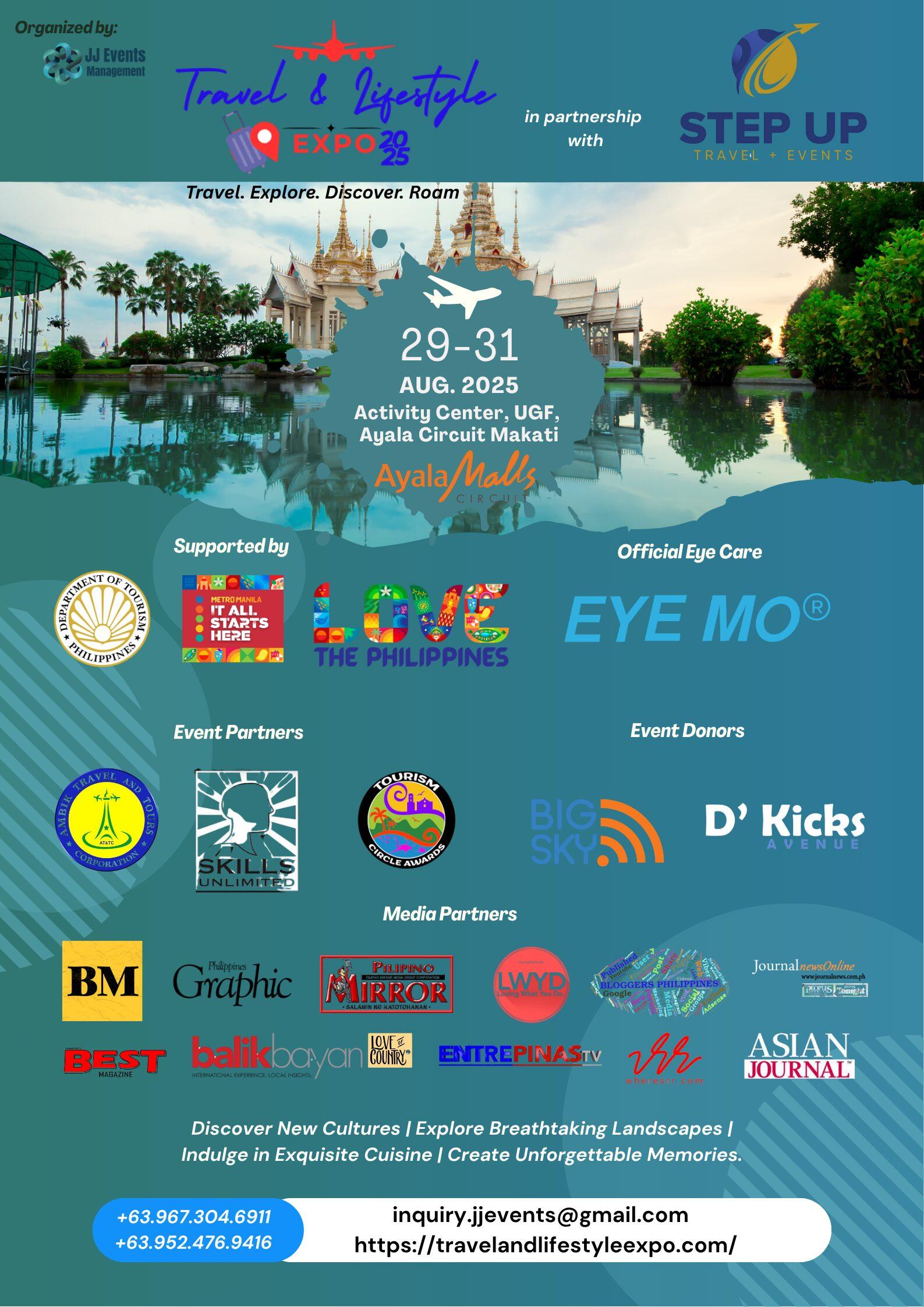VACATIONS are nothing more than series of moments that you remember between all the exhaustion, moving from one place to another. It’s the special times obliterated by little things that you remember, as one tries desperately to cling to joyous carefree days and all the cultural enrichment you experienced on a trip.
But when vacation overloads, you know its time to go home. You’re exhausted from packing and rearranging the souvenirs you can’t live without, you’re fed up with people quoting battles and dates, you’re bored with your wardrobe and your hair and you want to eat LA food. (Of course, I want to hear fellow journalist Steve Angeles of “Balitang America” tell me how Los Angeles fared in my absence).
It is time to go home when you don’t know why you take out everything on your surroundings: the soap is the size of a credit card, the bedspread weights 148 pounds and I have to remove it, with a temper tantrum. That’s when I realize some of the most creative fiction being written today are travel brochures — and then I cry.
When our plane landed, 150 passengers sprung into the aisles as if someone yelled “Fire!” Everyone dragged carry-ons, coats, souvenirs and children down miles of corridor until they reach the baggage area. They arm wrestled one another to be on the front of the carousel. The only thing that stood by us and home. The baggage claim area, is absolutely sub-human and I am convinced there will never be world peace until we can get 200 people to claim their luggage in an orderly fashion.
We were travelers who at the beginning of our trip laughed and told jokes, our clothes were matched, and when we saw a line, we went to the end of it.
But reentering the world you have left for two weeks is not an easy thing. One must pay a price for exploring new cultures, you really can’t just hop on a plane, arrive home and pick up where you left it. You first have to go to a rite of passage, a ritual as old as man himself. It is called jet lag.
It is a temporary disruption of the body’s normal biological rhythms after high speed air travel through several time zones. It is a classy way of saying your body will never be the same again. You will sleep when everyone else is awake, nod off during a root canal, and possibly damage your biological canal and give birth at the age of 73.
You could die from jet lag. I’ve read of a couple of feeble attempts to deal with the malady – a drug called Melatonin has been used effectively in sheep, but I have not known of any sheep that are frequent flyers! Research came up that eating and drinking light and exercising helped make the transition from time zone to time zone easier. So I usually pretend to row a boat, raise my knee to cheer, or roll the shoulder back and forth while airborne. The only Zumba exercise anyone gets on a plane is disengaging oneself from the jaws of the folding door of the restroom which threatened to digest me, as I scream, “Stop the plane!”
As we approached LA, my body wasn’t speaking to me anymore. We were at odds with one another the entire trip home. I made my legs work when they were asleep, my eyes closed when they were wide open, ate dinner in the AM and breakfast in the PM trying to adjust.
Back here in Los Angeles, as the plane emptied, it occurred to me we that all nine of us looked like derelicts. There was the steady stream of passengers with eyes that sparkled under a rosy glaze, disheveled clothes, twisted hair that stood on end, enough bags under the eyes to keep 50 porters employed for a year.
The family had the look of people with no will to live!
***
E-mail Mylah at moonlightingmdl@aol.com






